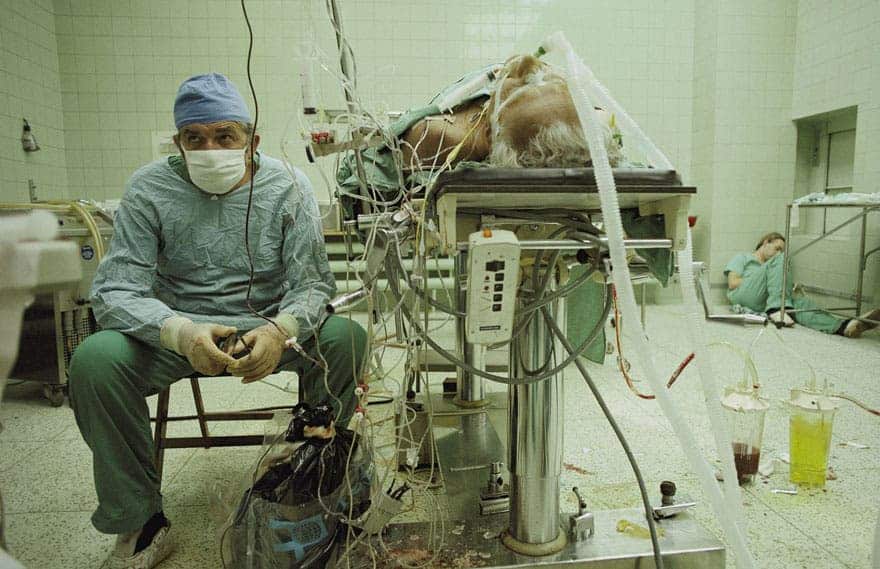I remember how I felt seeing an exposed human heart for the first time.
I was assisting my mentor with the coronary bypass surgery. After he split the breastbone, and incised the thick layer of the sack enveloping the heart, I saw a slowly contracting glob of muscle. No bigger than a human fist, spirally twisting and squeezing blood to the periphery. So, that was the place for feelings, the object of poets’ attention, the seating of the soul. It was something you could break, give away, and bleed. The broken heart syndrome, stress cardiomyopathy, is a medically distinct condition. Here it was, right in front of me. From my embryology class, I remembered it was also a first organ to form in a fetus. An exceptional part of the human body. By the time my seventy-year-old patient ended on the operating table, it beat a couple of trillion times. I was in awe!
I remember how I felt touching the human heart for the first time.
Later, I got a golden opportunity to touch it. I lifted a beating heart while a bypass machine supported a patient. It felt somewhat slimy, trying to squeeze out of my open hand. Then it fell to its rightful place deep in the chest. If a heart was a symbol of life, for a moment, I had the patient’s life in my hand.
But seeing and holding the beating heart was not the biggest miracle I’ve witnessed on the operating table.
To do his elaborate work, a surgeon almost always has to stop the heart. He cools the organ and injects a heart-stopping solution to its vessels. Then he does the work. Now, by many time-honored definitions, the life ends when a heart stops beating. If you subscribe to that view, my patient was dead for the length of the surgery. After the work is done, he has to bring a heart back to life. But then a miracle happens. I could see the organ, laying motionless for an hour or two, resting, sleeping ––out of a blue, waking up. It starts contracting, First sporadically, then, after rubbing its eyes, stretching its arms, slowly picking up the rate. First lazily, as if not knowing what had happened to it. Later on, with all its exuberance, beating more and more vigorously, saying thank you for all the good work you’ve done on me and for me. An exhilarating view.
That was the biggest miracle I’ve experienced during my career as a heart surgeon.
And then you can talk to the patient’s family, and tell them everything went fine.


